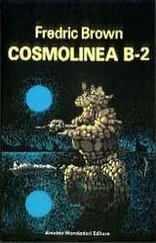Эллен Глазгоу - Barren Ground
Здесь есть возможность читать онлайн «Эллен Глазгоу - Barren Ground» весь текст электронной книги совершенно бесплатно (целиком полную версию без сокращений). В некоторых случаях можно слушать аудио, скачать через торрент в формате fb2 и присутствует краткое содержание. Жанр: Классическая проза, на английском языке. Описание произведения, (предисловие) а так же отзывы посетителей доступны на портале библиотеки ЛибКат.
- Название:Barren Ground
- Автор:
- Жанр:
- Год:неизвестен
- ISBN:нет данных
- Рейтинг книги:3 / 5. Голосов: 1
-
Избранное:Добавить в избранное
- Отзывы:
-
Ваша оценка:
- 60
- 1
- 2
- 3
- 4
- 5
Barren Ground: краткое содержание, описание и аннотация
Предлагаем к чтению аннотацию, описание, краткое содержание или предисловие (зависит от того, что написал сам автор книги «Barren Ground»). Если вы не нашли необходимую информацию о книге — напишите в комментариях, мы постараемся отыскать её.
Barren Ground — читать онлайн бесплатно полную книгу (весь текст) целиком
Ниже представлен текст книги, разбитый по страницам. Система сохранения места последней прочитанной страницы, позволяет с удобством читать онлайн бесплатно книгу «Barren Ground», без необходимости каждый раз заново искать на чём Вы остановились. Поставьте закладку, и сможете в любой момент перейти на страницу, на которой закончили чтение.
Интервал:
Закладка:
"I can't tell," she answered, walking on again. "There isn't any reason. I've finished with all that."
He was undismayed. "I'll keep on. I'm not in a hurry." Actually at fifty-five, he was not in a hurry.
"It isn't any use," she replied as firmly as she could. "It isn't the least use in the world."
"Well, I'll keep on anyway."
In the end, though she had spoken with decision, she had failed to convince him. That had been two years ago, and he still came in his big car every Sunday afternoon. But as he had warned her, he was not in a hurry, and his courtship was as deliberate as his general habit of body.
Although it seemed to her that she had grown wiser with the years, she had never entirely abandoned her futile effort to find a meaning in life. Hours had come and gone when she had felt that there was no permanent design beneath the fragile tissue of experience; but the moral fibre that had stiffened the necks of martyrs lay deeply embedded in her character if not in her opinions. She was saved from the aridness of infidelity by that robust common sense which had preserved her from the sloppiness of indiscriminate belief. After all, it was not religion; it was not philosophy; it was nothing outside her own being that had delivered her from evil. The vein of iron which had supported her through adversity was merely the instinct older than herself, stronger than circumstances, deeper than the shifting surface of emotion; the instinct that had said, "I will not be broken." Though the words of the covenant had altered, the ancient mettle still infused its spirit.
There were winter nights, in front of her sinking fire, when she would live over the romantic folly and the thwarted aims of her youth. Then, through what appeared to be an endless vista, she would survey the irreconcilable difference between character and conduct. In her own life she could trace no logical connection between being and behaviour, between the thing that she was in herself and the things she had done. She thought of herself as a good woman (there were few better ones, she would have said honestly) yet in her girlhood she had been betrayed by love and saved by the simplest accident from murder. Surely these were both flagrant transgressions according to every code of morality! They were acts, she knew, which she would have condemned in another; but in her memory they appeared as inevitable as the rest of her conduct, and she could not unravel them from the frayed warpand-woof of the past. And she saw now that the strong impulses which had once wrecked her happiness were the forces that had enabled her to rebuild her life out of the ruins. The reckless courage that had started her on the dubious enterprise of her life had hardened at last into the fortitude with which she had triumphed over the unprofitable end Of her adventure. Good and bad, right and wrong, they were all tangled together. "How can I tell," she could ask, "what I should have done if I had not been myself?"
Chapter 7
Riding slowly down the road from Five Oaks to Gooseneck Creek, Dorinda watched the few sheep browsing among the lengthening shadows of the October afternoon. Beyond them the life-everlasting broke in silver waves against the dim blue horizon. Over the whole landscape, with its flat meadows, its low rounded hill in the east, its crawling rust-coloured roads, hung a faint, hazy drift, as inaudible as the dying quiver of insects. Passing at a walk on her white horse against the rich autumn sunset, she reached the log bridge at the creek and kept on toward the fork of the road. She had taken the longer way home in order that she might inspect the new gate which William Fairlamb had finished. Round her, as evanescent as the last flare of day, there was this quivering haze, which was half dreamlike and half the tremor of perishing things. Nature drifting into rest; flowers drifting into dust; grasshoppers drifting into death; faint sunshine drifting into darkness. And in her own mind shadowy images or impressions drifting into thoughts.
It was five years now since the war had ended, and in those years she had recovered both her inward confidence and her outward prosperity. The misfortunes that had threatened the two farms had passed over her like wild geese. Even the labour question had been lessened, if not solved, by the application of electricity and gasoline. She had made a name that was not unknown among the farmers of the state; she had reclaimed two unproductive farms from the clutch of broomsedge and sassafras. In shallow soil, where her father had ploughed only six inches deep, she was now raising rich and abundant crops. Her dairy, she knew, was as well managed, her butter as good, as any that could be found in the country. The products of her dairy, with the name Old Farm stamped under the device of the harp-shaped pine, were bringing the highest prices in the market. She could smile now, with her butter selling in the Washington dairy at a dollar a pound, over the timidity with which she had, modestly asked thirty cents in the beginning. By that subtle combination of prudence and imprudence which she called character, she had turned disappointment into contentment and failure into success.
Riding there in the silver gleams which flashed up from the life-everlasting, she appeared, after the hard years, to have ripened into the last mellowness of maturity. Though her figure in the shirtwaist and knickerbockers of brown corduroy was no longer youthful, it was still shapely. The texture of her skin was rough and hard like the rind of winter fruit, but the dark red had not faded, and her eyes beneath the whitened hair were still as blue as a jay bird's wing. Though she did not look young for her fifty years, she looked as if the years had been victorious ones.
As she opened the new gate, and passing through, turned to close it behind her, she heard the sound of approaching wheels, and saw the piebald horse and peculiar gig of Mr. Kettledrum ascending from the dip in the road. When he reached her they stopped to speak, after the manner of the country, and the old "mail rider," who was just returning on his circuit of twenty-six miles, described, with sprightliness, the condition of the roads over which he had travelled.
"Three big trees blew down on the Whippernock road the other night," he said, "and I reckon they'll lie thar until they rot if the farmers down that way don't cut them up for logs to burn. The Government sent an inspector down last week and he rode over my circuit along with me." A note of pride crept into his quavering voice. "He told me he'd never seen any worse roads in the whole course of his recollection. No, ma'am, not in the whole course of his recollection."
"I hope he'll do something about them. After all, the Government is responsible for the rural delivery."
Mr. Kettledrum shook his head. "I ain't lookin' for nothin' to be done, at least not in my time. It don't look as if the Government can afford to inspect and improve too, particularly when they're inspectin' the roads where mostly Democrats travel. But it was a real comfort to know he thought it was the worst mail road he'd ever laid eyes on in the whole course of his recollection."
"I've been trying to get some of the negroes to mend this bad place before winter. The only way is for the farmers to keep their own roads in repair. The state started to improve the road between Pedlar's Mill and Turkey Station, and all it did was to cut down every last one of the trees. There isn't a patch of shade left there."
"That's true. I know it, ma'am," assented Mr. Kettledrum, who liked to talk of the road, as a man likes to talk of an affliction. "Don't I travel that road between ten and two o'clock on hot August days?" Then his face saddened to the look of stoical resignation with which men survey the misfortunes of others. "When I come along thar this mornin' they was bringin' Jason Greylock away from his house in the woods, and I stopped for a word with him. He was too weak to speak out loud, but he made a sign to say that he knew me. If thar ever was a wasted life, I reckon it was Jason's, though he started out with such promise. Bad blood, bad blood, and nothin' to counteract the taint of it."
Читать дальшеИнтервал:
Закладка:
Похожие книги на «Barren Ground»
Представляем Вашему вниманию похожие книги на «Barren Ground» списком для выбора. Мы отобрали схожую по названию и смыслу литературу в надежде предоставить читателям больше вариантов отыскать новые, интересные, ещё непрочитанные произведения.
Обсуждение, отзывы о книге «Barren Ground» и просто собственные мнения читателей. Оставьте ваши комментарии, напишите, что Вы думаете о произведении, его смысле или главных героях. Укажите что конкретно понравилось, а что нет, и почему Вы так считаете.










![Эллен Дедженерес - Кроме шуток [Как полюбить себя, продать дуршлаг дорого, прокачать мозг с помощью телешоу и другие истории от Эллен Дедженерес] [litres]](/books/384873/ellen-dedzheneres-krome-shutok-kak-polyubit-sebya-p-thumb.webp)

